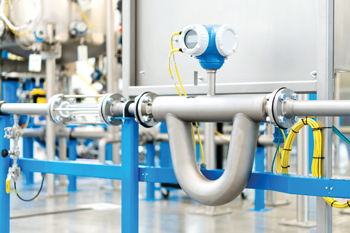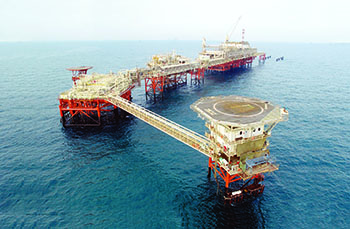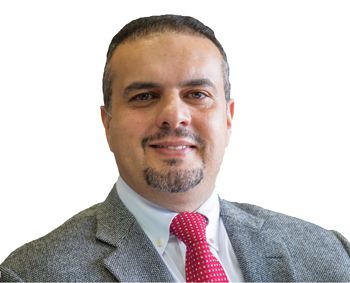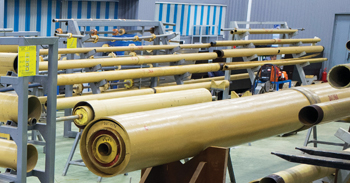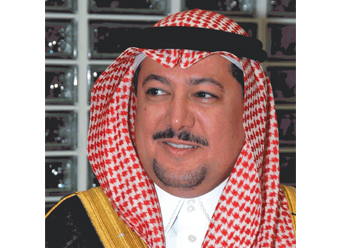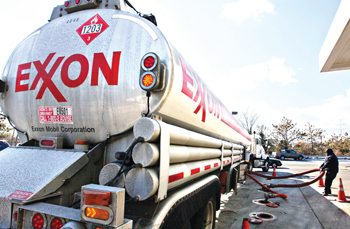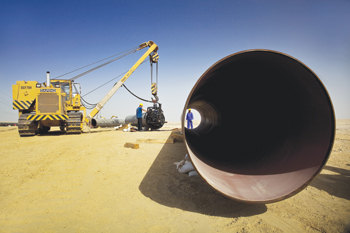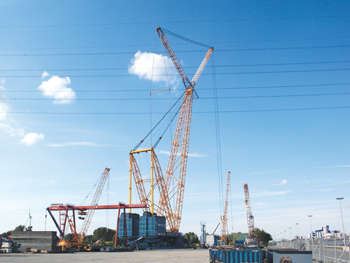
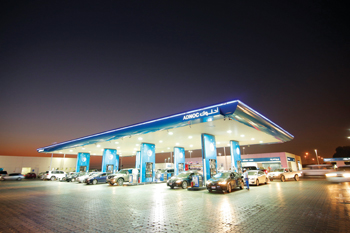 Adnoc Distribution ... successful listing
Adnoc Distribution ... successful listing
As it accelerates delivery of its 2030 strategy, Adnoc will optimise its upstream operations and drive solutions to maximise recovery from its mature reservoirs, while seeking ways to cost effectively unlock the potential of untapped resources
Adnoc's key strategic investments programme, according to which it plans to spend over $108.9 billion over the next five years, has received the approval of Abu Dhabi’s Supreme Petroleum Council (SPC), even as the oil and gas company expands its 2030 strategy, aimed at unlocking, creating and maximizing value and ensuring smart growth in its upstream, and downstream businesses, while strengthening market access.
The SPC approved Adnoc’s plans for capital expenditure of over Dh400 billion ($108.9 billion), over the next five years, as it embarks on its upstream and downstream expansion and growth projects. The SPC also approved Adnoc’s plans to explore and appraise Abu Dhabi’s unconventional gas resources, as the company seeks to enable future value creation from its untapped gas resources. And, the SPC gave the green light to Adnoc to pursue international downstream investments.
 |
Al Jaber ... focus on expansion |
Dr Sultan Ahmed Al Jaber, Minister of State and Adnoc Group CEO, says: 'This marks the next phase in delivering our 2030 strategy, which will contribute to further maximising value from all our resources, introduce new and significant partnership opportunities and enhance our capabilities to diversify our portfolio of products, as we aim to expand into key growth markets.
'In line with the SPC’s directives, over the coming years, we will make strategic, commercially driven and targeted investments, across our entire value chain, aimed at maximizing existing resources, while also identifying and developing new, value-enhancing opportunities.'
He also adds: 'Furthermore, our intention to explore and appraise our unconventional resources, in collaboration with value-add, strategic partners, reinforces Adnoc’s objective to further diversify our hydrocarbon assets base and enable value creation through vast untapped resources. We aim to unlock and deliver material and commercially viable production from Abu Dhabi’s unconventional resources by 2030, with a focus on gas and gas liquids.'
As it accelerates delivery of its 2030 strategy, Adnoc said it continues to optimise its upstream operations and drive solutions to maximise recovery from its mature reservoirs, while seeking ways to cost effectively unlock the potential of untapped resources and leverage technology economies of scale to keep the operating cost per barrel at the most competitive level.
It remains on track to expand oil production capacity to 3.5 million barrels a day by the end of 2018, and to improve drilling time by 30 per cent by 2019. The company noted that its enhanced efficiencies have brought Adnoc’s low production cost down even further, a factor driving interest in the upcoming offshore concessions, which have attracted more than 14 potential partners from across the world.
In gas, Adnoc is focused on ensuring a sustainable and economic supply of gas for the UAE’s growing demand. To help achieve this Adnoc will access undeveloped tight reservoirs, tap into its gas caps and expand sour gas production. In addition, it has started an exploration drilling program to explore for, and appraise, the potential of individual gas deposits in tight reservoirs.
Adnoc plans to secure additional captive crude processing capacity in growth markets, establish sector specific global businesses and enhance its global marketing activities, including introducing non-speculative asset-backed trading, to further stretch the dollar from every barrel of oil it produces.
In support of its expanded 2030 strategy, Adnoc will grow its crude refining capacity by 60 per cent and more than triple its petrochemical production, to 14.4 mtpy by 2025 through a staged expansion plan aimed at initially optimizing its existing assets to grow and diversify its products portfolio. An aromatics project will convert naphtha, which is currently exported, into gasoline and aromatics and a large project to enhance the crude processing flexibility of its 900,000 bpd refining system will be taken forward.
Delivery of Adnoc’s expanded 2030 strategy builds on three changes it has made to the way it operates. It has expanded its approach to partnerships, to capitalise on growth opportunities, enhanced its capital structure, to more smartly finance its business, and revised the way it manages its portfolio of assets, to drive performance and unlock lasting value.
Adnoc offered a minimum 10 per cent stake, or 1.25 billion shares, and a maximum 20 per cent stake, or 2.5 billion shares, in the partial IPO of Adnoc Distribution, its fuel distribution unit.
The Adnoc Distribution IPO, which will be the first time Adnoc has placed shares of one of its subsidiary companies onto the public markets, offers both UAE and international investors the opportunity to invest alongside Adnoc in the region’s retail brand.
Meanwhile, Adnoc and Borealis, the joint venture partners in Borouge, have signed a framework agreement in which they will advance projects that will expand and add value to the downstream petrochemicals business of both companies. This comes in the context of Adnoc’s expansion of its strategic partnership over its value chain as part of its 2030 growth strategy.
Adnoc and Borealis are moving to the pre-front-end engineering and design (Feed) stage for the construction of the Borouge 4 complex, which is scheduled to come on stream around 2023 and will be integrated with Adnoc’s Takreer refinery. They have also commenced engineering, procurement and construction (EPC) tendering for an additional polypropylene plant (PP5) with 500,000 tpy capacity and based on Borealis’s proprietary Borstar technology. PP5 will be integrated into the existing Borouge 3 complex, adding value to the surplus propylene available from Takreer’s new propane dehydrogenation (PDH) unit.
Borouge’s aim is to supply the automotive and energy markets as well as in pipe, agricultural film and the rigid and flexible packaging sectors. Its main target market is Asia, where polymer demand is set to double by 2040.
Adnoc’s expansion plans involve bringing in new investors, including private equity in some areas, but at a holding level it will remain 100 per cent owned by the Abu Dhabi government. As such, it is assessing initial public offerings (IPOs) for some service operations.
Tightness in the gas market is leading to upward pressure on ethane costs at a time when naphtha-based production is enjoying lower costs due to lower oil prices. As the region’s petrochemical industries compete with power generation and other industries over gas supply, some petrochemical producers are choosing to increase investment in naphtha-based petrochemicals production. The UAE is doing this by focusing on mixed-feed crackers.
Competition is growing among the emirates for investment in downstream industries. Abu Dhabi and Dubai are considered established petrochemicals hubs, with the former advantaged by cheaper labour and electricity costs. However, Dubai is regarded as possessing a superior port infrastructure at Jebel Ali. The other five emirates are also receiving increasing attention where cost of production is cheaper. Sharjah’s Hamriyah Free Zone and the Ras al-Khaimah Free Trade Zone are seen as alternative investment destinations. Fujairah is also keen to get more downstream petrochemical investments, due to its advantage as a port city and a bunkering hub.
 |
The Ruwais refinery is being expanded |
Rising feedstock prices, limited ethane feedstock availability, increasing construction costs and the anticipation of slower demand growth in key markets are expected to lead to a decline in the number of new project announcements. A significant risk factor for the UAE’s petrochemicals industry is its current reliance on naphtha feedstock.
As well as China, Borouge is seeking to establishing sales and marketing operations in India. It has teamed up with India’s Machino Polymers, which will produce compounded polypropylene (PP) for supply to the automotive industry from PP resin sourced from Borouge.
The UAE’s petrochemical developments are concentrated in Abu Dhabi, which owns the fifth largest oil reserves in the Middle East and hosts most of the olefins and polymer production capacity in the UAE. Despite the global economic downturn, Abu Dhabi continues to press ahead with plans to develop its petrochemicals industry and has made strategic acquisitions in the downward market.
In Q1 2017, Abu Dhabi completed the merger of two of its sovereign wealth funds: the International Petroleum Investment Company (IPIC), a holdings company that invests in energy and petrochemicals; and Mubadala Development Company, a vehicle for economic diversification. The new entity was named Mubadala Investment Company. Both were hit by low oil prices. The new fund has assets estimated at $130 billion. The government claims the new entity will create synergies and growth in a wide range of sectors.
Abu Dhabi is planning petrochemicals projects under the Abu Dhabi National Chemicals Company (Chemaweyaat), a JV involving Adnoc (20 per cent), IPIC (40 per cent) and the Abu Dhabi Investment Council (40 per cent), which it hopes will be the world’s largest petrochemical complex, located in Khalifa Industrial Zone at Taweelah. It will include an olefins plant, an aromatics complex and a range of downstream polymer and chemical units. The company’s website had envisaged commercial operations in earnest in 2018, but work on the plants has stagnated in recent years, with low oil prices continuing to spell uncertainty over the future of certain high capex investments in the UAE.
It is planned that the aromatics complex will convert almost 3 mtpy of heavy and medium naphtha, supplied via pipeline from the Takreer Ruwais refinery, into paraxylene, mixed xylene and benzene. The infrastructure required to support the new complex includes a dedicated export tank farm, jetty and loading berths. The Abu Dhabi Chemicals Integration Company (Tacaamol) complex will be built at Al-Gharbia, near Adnoc’s Takreer refinery at Ruwais. No completion date has been set and reports suggest it will be scaled back.
As well as China, Borouge is seeking to establishing sales and marketing operations in India. It has teamed up with India’s Machino Polymers, which will produce compounded PP for supply to the automotive industry from PP resin sourced from Borouge.
Adnoc subsidiary Ruwais Fertilizer Industries (Fertil) is building a fertiliser complex with capacities of 730,000 tpy ammonia and 1.28 mtpy urea, more than doubling the company’s capacities. The $1.2 billion project is facing delays due to technical problems, putting it months behind schedule. Adnoc, which owns a 66.6 per cent stake in Fertil, will supply the plant’s natural gas feedstock requirements. Samsung Engineering was awarded a lump-sum turnkey contract in 2009 for the complex at Ruwais and is responsible for the EPC of the complex.










































































.jpg)
